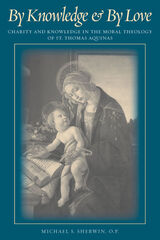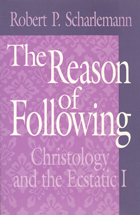
A new edition featuring Saint Augustine’s dialogue on immortality from a tenth-century Latin manuscript, accompanied by an Old English vernacular adaptation translated into modern English for the first time in a hundred years.
Around the turn of the tenth century, an anonymous scholar crafted an Old English version of Saint Augustine of Hippo’s Soliloquia, a dialogue exploring the nature of truth and the immortality of the soul. The Old English Soliloquies was, perhaps, inspired by King Alfred the Great’s mandate to translate important Latin works. It retains Augustine’s focus on the soul, but it also explores loyalty—to friends, to one’s temporal lord, and to the Lord God—and it presses toward a deeper understanding of the afterlife. Will we endure a state of impersonal and static forgetfulness, or will we retain our memories, our accrued wisdom, and our sense of individuated consciousness?
This volume presents the first English translation of the complete Old English Soliloquies to appear in more than a century. It is accompanied by a unique edition of Augustine’s Latin Soliloquia, based on a tenth-century English manuscript similar to the one used by the translator, that provides insight into the adaptation process. Both the Latin and Old English texts are newly edited.




Scharlemann presents a christological phenomenology of the self, tracing the connections between the "I am" of the God who spoke to Moses, the "I am" of Christ, and the "I am" of autonomous self-identification. How, he asks, can the self that spontaneously responds to Jesus' "Follow me!" be compared with the everyday, autonomous self? What is the nature of "following" on the part of those who answer the summons of one whose name is "I am"? Pursuing these questions, Scharlemann develops a christological phenomenology of the self—an account in which following means not the expression of the self in action or reflection but rather self-discovery in another person.
With a deep sense of both culture and philosophy, Scharlemann distinguishes the forms of reason involved in "following" from those in ethics, aesthetics, and other modes of religious philosophic thought. His penetrating readings of nineteenth- and twentieth-century German theological and philosophical traditions provide an introduction to lesser-known thinkers such as Hermann and Picht as well as a profound critique of major figures such as Descartes, Heidegger, Fichte, and Kant.
Finally Scharlemann outlines a program for a more systematic and rounded presentation of what Christian doctrine might mean in the contemporary world. His work will be of interest to students of theology and philosophy alike.

The issue of religious authority has long fascinated and ignited scholars across a range of disciplines: history, anthropology, the sociology of religion, and political science. Religious Knowledge, Authority, and Charisma juxtaposes religious leadership in premodern and modern Islam with examples from the Judaic tradition. By illustrating various iterations of authority in numerous historical and cultural contexts, this volume offers fresh insights into the nature of institutions of learning and other systems of establishing and disseminating authority, the mechanisms for cultivating committed adherents, and the processes by which religious leadership is polarized and fragmented.

READERS
Browse our collection.
PUBLISHERS
See BiblioVault's publisher services.
STUDENT SERVICES
Files for college accessibility offices.
UChicago Accessibility Resources
home | accessibility | search | about | contact us
BiblioVault ® 2001 - 2024
The University of Chicago Press









